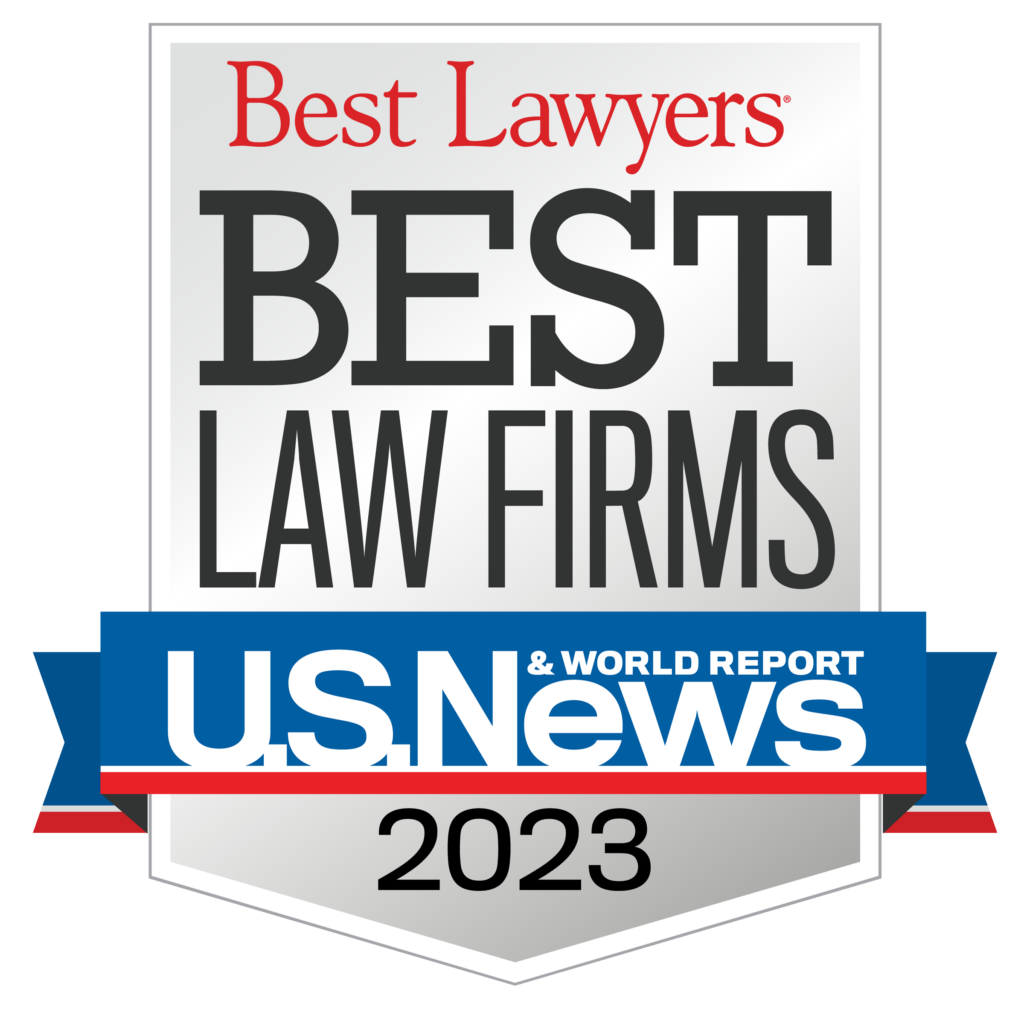More HH Legal Updates
CARES ACT PROVISIONS AFFECTING RETIREMENT PLANS:
On March 27, 2020, President Trump signed the Coronavirus, Aid, Relief and Economic Security Act (CARES Act) into law. The $2 trillion stimulus law covers many aspects of the U.S. economy, but some of the most important are those affecting retirement plans, as employers look for ways to keep their businesses afloat and employees look to 401(k) and pension plans as a source for distributions or loans needed to get them through periods of layoff or unpaid leaves of absence. A summary of the key retirement plan provisions in the CARES Act is as follows:
Coronavirus-Related Distributions:
Under pre-CARES Act law, most 401(k) plans permit “hardship distributions” to employees who meet certain criteria, such as medical expenses, home purchases, educational expenses, and expenses incurred due to federally-declared disasters. (At this point, a limited number of states have been declared as disaster areas by the federal government due to the coronavirus.) The CARES-Act creates new rules allowing “coronavirus related distributions,” defined to include any distribution from a retirement plan or IRA for an individual: (a) who is diagnosed with COVID-19; (b) whose spouse or dependent is diagnosed with COVID-19; (c) who experiences adverse financial consequences as a result of being quarantined, furloughed, laid off, having work hours reduced, being unable to work due to lack of child care due to COVID-19, or closing or reducing hours of a business owned or operated by the individual due to COVID-19; or (d) who is affected by other factors to be determined by the Secretary of the Treasury. An employer is permitted to rely on the employee’s certification that these conditions are satisfied, without seeking independent verification of any kind. Qualifying coronavirus-related distributions are available at any time during 2020, i.e., retroactively to January 1, 2020 and up to December 31, 2020.
Tax Treatment of Coronavirus-Related Distributions:
Pre-CARES Act law generally imposes a 10% penalty tax, in addition to ordinary income tax, on distributions taken from employer retirement plans and IRAs prior to age 59½. The CARES Act waives the 10% penalty tax on coronavirus-related distributions up to $100,000 per individual. These withdrawals will still be subject to ordinary income tax, but the new law permits individuals to pay that tax ratably over a period of 3 years, and allows individuals to repay the distribution amount into a plan or IRA over the next 3 years. Any such repayment will be treated as a rollover contribution. From the employer’s perspective, the mandatory 20% withholding that normally applies to distributions that are not rolled directly into an IRA or other plan need not be applied to coronavirus-related distributions, and no opportunity for a direct rollover (or the “402(f) notice” required to accompany an eligible rollover distribution) must be provided.
Plan Loans:
Under pre-CARES Act rules, a participant loan from a 401(k) or other employer plan has been limited to the lesser of 50% of the participant’s vested account balance or $50,000. For any individual who meets the criteria for a coronavirus-related distribution (as described above), the CARES Act doubles these limits to the lesser of 100% of the participant’s vested account balance or $100,000, for any loan taken within 180 days of the date of enactment of the CARES Act. Also, a participant with an outstanding plan loan with a repayment due from the date of enactment through December 31, 2020 can delay loan repayments for up to one year. (Interest will continue to accrue during the period of deferral, requiring re-amortization when payments resume.)
Required Minimum Distributions:
An individual who has reached age 72 is generally obligated to take certain required minimum distributions (RMDs) from retirement plans and IRAs. (For individuals who reached age 70½ before January 1, 2020, the age at which RMDs were mandated was age 70½. Also, an exception applicable to employer plans is generally available for any employee, other than a 5% owner of the business, who remains employed beyond the RMD age.) The CARES Act forever waives the RMD requirement for any amount that would have been due in 2020 absent the change. The waiver generally applies to all forms of defined contribution plans (e.g., 401(k) and 403(b) plans) and IRAs, but not to defined benefit pension plans.
Plan Amendments:
Employer retirement plans will need to be amended to permit coronavirus-related distributions and loans in excess of pre-CARES Act limits. However, recognizing the need for employees to have access to qualifying distributions and loans very quickly, the CARES Act specifically provides that the new rules can be put into effect immediately, and employers will have at least until the end of 2022 to adopt conforming amendments. While employers will eventually need to notify their plan document providers of the changes they are making in plan operations, they need not wait for actual plan amendments prior to implementation.
Forgiveness of Loans Used for Payroll Costs:
The CARES Act allows small businesses to take advantage of the Small Business Administration Loan Program to address their working capital needs during this time of business hardship. These loans may be used to cover “payroll costs,” which specifically include retirement plan contributions such as employer matching contributions to 401(k) plans. Loan proceeds used for payroll costs are eligible for partial or full forgiveness, provided that certain conditions are met. While many employers may be considering the reduction or suspension of employer contributions to their plans, the availability of these loans may allow at least some of those employers to forego these actions.
Many employers and employees will no doubt have questions concerning the provisions described above, and it is expected that the IRS will be issuing regulations or other guidance to fill in the details of the new rules. In the meantime, please contact Gary Gunnett at (412) 288-2210 or ggunnett@hh-law.com with any questions.
About Us
Trusted and Cost-Effective Business Law, Business Litigation and Estate Planning Attorneys and Counselors; Building Client Confidence™ with Businesses and Individuals Since 1975
Our firm offers individualized solutions and the highest quality, client-driven and cost effective legal services. Houston Harbaugh, P.C., is a well-known law firm in Pittsburgh, serving Pennsylvania, West Virginia and Ohio. Our diverse practice areas include Business Law, Business Litigation, Estate and Succession Planning, Intellectual Property Litigation and Prosecution, Employment and Labor, Employee Benefits, Oil and Gas, Landowner and Property Dispute Counseling and Litigation, Health Care, Environmental, Real Estate, Construction, Complex Tort and Catastrophic Injury Litigation, Insurance coverage and Bad Faith Law, Mediation, Arbitration and Special Master appointment work. As one of the 20 largest law firms in Pittsburgh, our lawyers serve clients on a regional and national basis.
We regularly represent regional, national and international insurance carriers in defense, insurance coverage, unfair trade practices and bad faith matters, and we issue opinions letters and coverage analyses for insurers. We defend designers, manufacturers and sellers in pharmaceutical, products and medical products liability matters and we litigate and try cases involving catastrophic injuries, industrial accidents, toxic torts, professional, engineering and architectural negligence, and agent and broker claims and lawsuits.

Why Houston Harbaugh, P.C.? The Answer Is Clear.
We are accomplished litigators with a strong track record of success in the courtroom and in jury trials. We design and manage business transactions, succession planning, banking and regulatory issues. Our firm has regularly been featured in the U.S. News “Best Lawyers”® rankings of Pittsburgh’s “Best Law Firms.” Our attorneys are also regularly nominated as “Best Lawyers” in this publication. In addition, many of our attorneys are consistently recognized in the annual national Super Lawyers peer review rankings, and our corporate practice has been selected as the winner of The Legal Intelligencer’s Best Law Firm Corporate Practices contest for the Midsize Firm category. Our property and landowner counseling and litigation practice in Oil and Gas and Real Estate is ranked at the top on a regional basis. We help clients to apply for, prosecute, audit, manage and protect intellectual property rights in patent, trademark, copyright and trade secrets. We are admitted to the USPTO and have experience in the TTAB. Some of our firm’s shareholders are Adjunct Professors of Law at the Duquesne University School of Law in litigation and intellectual property courses.
Helping You Achieve Your Goals For Over 40 Years
Since our inception as a health care practice in 1975, our attorneys have represented clients in state and federal courts in Pennsylvania, West Virginia, Ohio and throughout the nation. We have grown into a multi-disciplinary practice with the ability to handle complex business transactional and litigation matters. We counsel on estate and succession planning and on trust and guardianship matters. We have a strong employment and labor practice. We represent clients in trade secret counseling and federal Defend Trade Secret Act (DTSA) counseling and litigation. Our DTSALaw® practice group is well versed in this federal body of trade secret law. We counsel, draft, litigate and defend claims involving employment non-compete, restrictive covenants, non-disclosure agreements and breach of contract matters. We service clients in the collection of debts and in bankruptcy creditor matters. Houston Harbaugh litigates in Orphans and Probate courts for matters involving estates and trusts. We also provide mediation and arbitration services to parties involved in litigation and our lawyers are currently serving as court appointed special masters in the Federal Courts.
Contact us and Learn How We Can Help You and Your Business
For more information on how we can help you, call our Pittsburgh office at 412-281-5060. You can also reach us online.
DTSALaw®; Business Litigation; PSMN®; and PSMNLaw® are federally registered trademarks of Houston Harbaugh, P.C. and this website is copyright protected. All rights Reserved to Houston Harbaugh, P.C.. Building Client Confidence™. www.dtsalaw.com www.psmnlaw.com www.psmn.com

